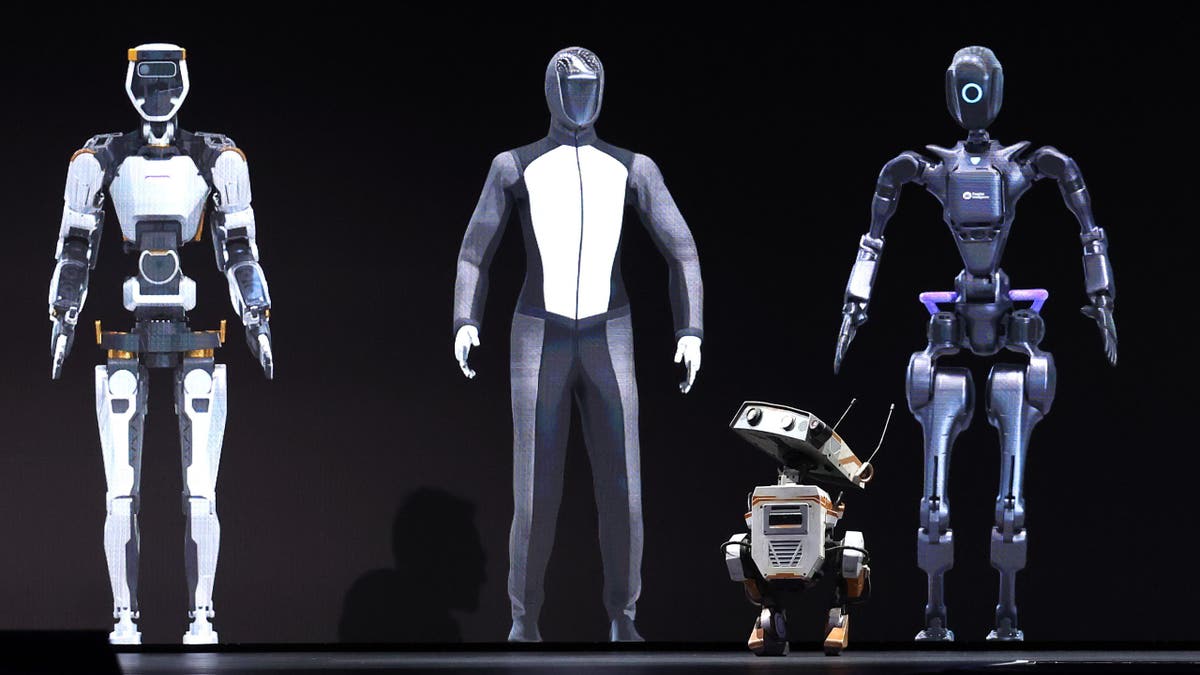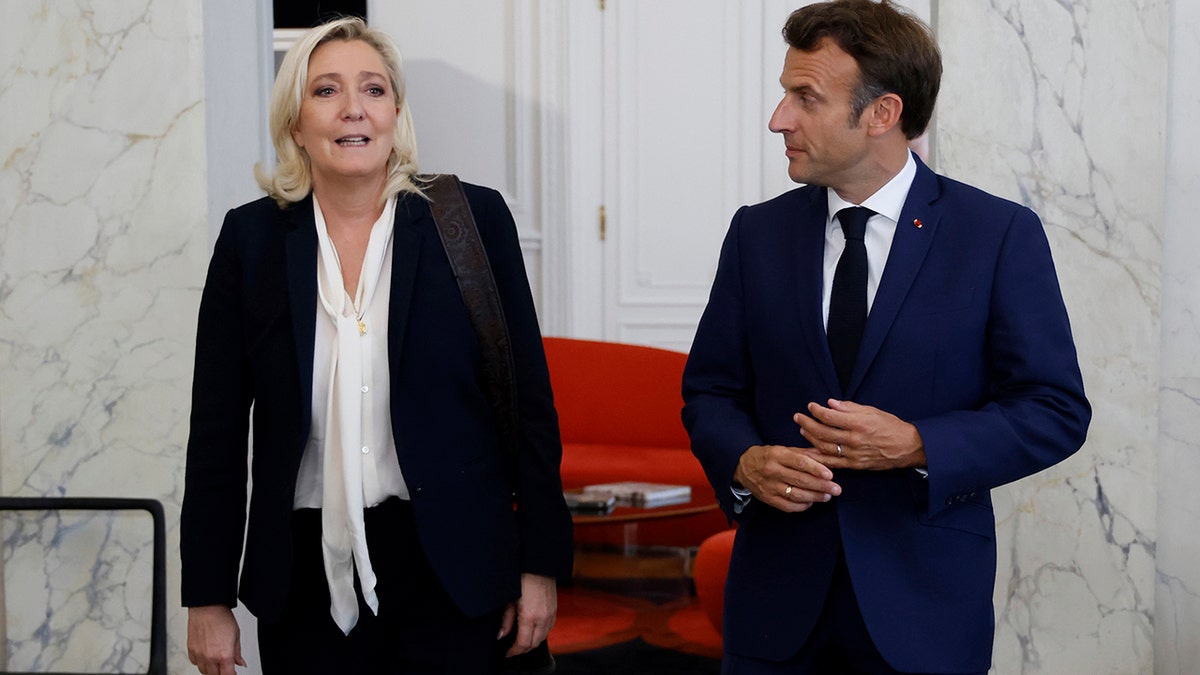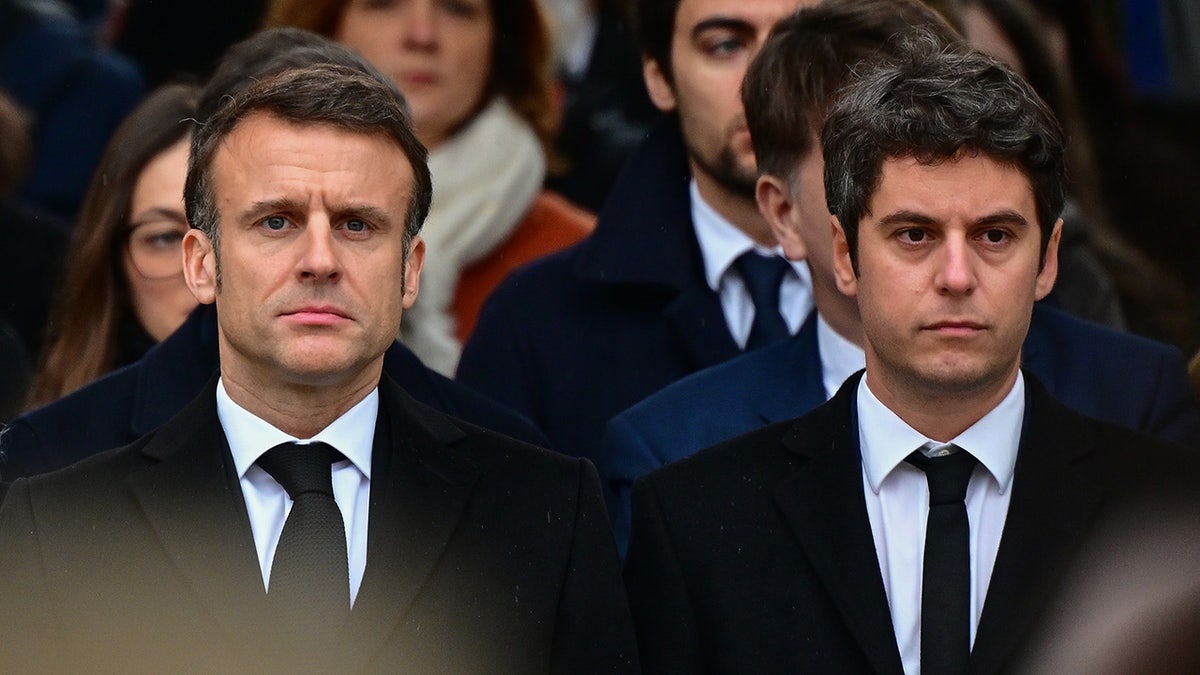INTERNACIONAL
US tops world ratings for AI preparedness; China, Russia and Iran lag in key measures, report finds

A new report from the International Monetary Fund (IMF) has rated countries on their ability to immediately adopt artificial intelligence (AI) into their economies, once again urging policymakers to ensure the life-changing tech «can benefit all.»
«Under most scenarios, AI will likely worsen overall inequality, a troubling trend that policymakers can work to prevent,» the IMF wrote in a blog post on its data. «To this end, the dashboard is a response to significant interest from our stakeholders in accessing the index.»
The index measures a country’s AI adoption preparedness through four key measures: digital infrastructure, human capital and labor market policies, innovation and economic integration and regulation.
The index breaks countries into five brackets with a rating of 0 to 1, with a higher score representing more favorable AI preparedness, rating 174 countries.
WHAT IS ARTIFICIAL INTELLIGENCE (AI)?
Employees work at an intelligent furniture factory using 5G and artificial intelligence technology Oct. 21, 2020, in Ganzhou, Jiangxi Province of China. (Liu Zhankun/China News Service via Getty Images)
According to those ratings, the U.S. and the Netherlands top the chart with a .77 value of preparedness. Other highly-rated countries are Finland and Estonia with .76, New Zealand, Germany and Sweden with .75 and Australia, Japan and Israel with .73.
Taiwan, which is the beating heart of semiconductor production and the manufacturer of the most advanced microprocessors, surprisingly received a .67 rating.
Rival nations in the West received worse ratings, with China at .64, Russia at .56, Iran at .38 and Venezuela at .27.
NATO’S $1.1B INNOVATION FUND INVESTS IN AI, ROBOTS AND SPACE TECH
India, an industrial powerhouse and a country that has rapidly ascended the ranks of major economies to overtake the U.K. as the fifth-largest economy starting in 2022, has a rating of .49.
At the bottom end — the countries least-prepared to adopt AI — were South Sudan with .11, Afghanistan with .13, the Central African Republic (CAR) with .18 and Somalia with .2. All other nations received ratings of .25 or higher.

A doctor using the AI document management concept. (iStock)
For countries like Afghanistan, the IMF lacks data on the economy, which may have skewed some of the data. Countries such as North Korea, Yemen, Eritrea and Turkmenistan did not appear on the map due to having «no data» about them.
The IMF warned that its data proved «challenging» to gather and synthesize, noting that «institutional requirements for economy-wide integration of AI are still uncertain.»
NEW BLOOD TEST COULD DETECT DEVASTATING CONDITION YEARS BEFORE SYMPTOMS APPEAR
«As the dashboard shows, different countries are at different stages of readiness in leveraging the potential benefits of AI and managing the risks,» the IMF wrote.
«In advanced economies, for example, some 30% of jobs could benefit from AI integration,» the IMF explained. «Workers who can harness the technology may see pay gains or greater productivity, while those who can’t, may fall behind.»

Nvidia is developing real-world robots equipped with artificial intelligence capabilities. (Justin Sullivan/Getty Images)
«Younger workers may find it easier to exploit opportunities, while older workers could struggle to adapt,» it added.
Previous IMF analysis determined AI will transform roughly 40% of global employment, which is in line with historical effects of automation and information technology advancements. However, what sets AI apart as a challenge is the fact it will also impact high-skilled jobs. And in more advanced economies, up to 60% of jobs may be affected.
CLICK TO GET THE FOX NEWS APP
With its new analysis, the IMF has suggested countries with more advanced economies should look to expand social safety nets, invest in training workers and prioritize AI innovation and integration.
«Coordinating with one another globally, these countries also should strengthen regulation to protect people from potential risks and abuses and build trust in AI,» the IMF said. «The policy priority for emerging market and developing economies should be to lay a strong foundation by investing in digital infrastructure and digital training for workers.»
INTERNACIONAL
French election preview: Polls show right-wing party leads runoff as opponents urge tactical voting

France is set to elect the right-wing National Rally (RN) as the largest party in government, yet no party may emerge with a clear majority in this tightly contested election as the second round of voting kicks off this weekend.
The first round, which occurred June 30, resulted in just 76 of the 577 constituencies in the French National Assembly determining their representative. Any candidate who did not receive an outright majority in the first round of voting heads on to the second-round runoff, which is set for July 7.
Those few contests that concluded in the first round revealed a lot about voter sentiment and indicated trouble for the current government after RN took one-third of the vote, the most by any party.
The current government is an «ensemble,» a coalition of parties, including French President Emmanuel Macron’s Renaissance (RE), Democratic Movement, Horizons, En Commun and the Progressive federation. Despite the assembly election results, Macron will retain his mandate as president until the 2027 election.
FRANCE’S RIGHT-WING NATIONAL RALLY LOOKS TO SEIZE ON RECENT ELECTORAL GAINS
Macron called the snap election after RN scored enormous success in the European Parliamentary elections in June. Polling before the first round of voting indicated RN would continue to dominate, but more recent polling ahead of the runoff indicates those returns have diminished and RN will fall short of a clear majority.
Wednesday’s poll indicates RN will end up taking between 190 and 220 seats, but it would need 289 seats to control the assembly, according to Reuters. Additionally, its closest ally, the Republicans, are projected to win – at most – around 50 seats, ruling out some kind of right-wing coalition to take control of the assembly.
Supporters of French far-right leader Marine Le Pen react after the release of projections based on the actual vote count in select constituencies June 30, 2024, in Hénin-Beaumont, northern France. (AP/Thibault Camus)
The next largest share would go to the New Popular Front alliance, which could net between 159 and 183 seats, leaving Macron’s ensemble third with around 110 to 135 seats. Macron has already ruled out making a new alliance with the left-wing party France Unbowed (LFI), according to French daily Le Figaro.
Many candidates from Macron’s alliance who reached the runoff have already stood down in an effort to focus voters and support behind the strongest non-RN candidate in any given constituency. Former French Prime Minister Edouard Phillippe told French network TF1 TV he would vote for a Communist candidate to stop RN from winning the seat.
FRANCE’S GOVERNMENT SPOKESPERSON IS ATTACKED ON CAMPAIGN TRAIL, DAYS BEFORE DECISIVE ELECTION
Macron insisted, however, that «withdrawing today for left-wing elected officials in the face of National Rally does not mean governing tomorrow with LFI.»
French Prime Minister Gabriel Attal last month blasted LFI as equally extreme and just as dangerous to French society as RN, writing on social media platform X that «Insoumise France fuels the National Rally and the National Rally fuels Insoumise France.

French President Emmanuel Macron, right, meets French far-right National Rally leader Marine Le Pen at Élysée Palace June 21, 2022, in Paris. (Ludovic Marin/Pool/AP)
«They fuel hatred, fears and divisions between the French,» Attal added. «On June 30 and July 7, against the extremes and for the Republic, vote!»
Opposition to RN stems from its roots as National Front, headed up by Marine Le Pen’s father Jean-Marie Le Pen, who was repeatedly convicted for racist and antisemitic remarks, including elements of Holocaust denial, such as when he referred to Nazi gas chambers as a «detail» of history.
RIVALS MOVE TO BLOCK FRANCE’S RIGHT-WING NATIONAL PARTY’S ELECTION MOMENTUM
But Marine Le Pen has found support among some of France’s Jewish voters as antisemitism continues to grow in Europe.
Her anti-Islam views and comments, however, have raised concerns among other voters, as well. In 2017, she suggested France expel any foreigners convicted of a crime or suspected of being radicalized and said convicted extremists with dual nationality should be stripped of their French passports, Radio France Internationale reported.
«The measures that I want to put in place would mean that many of these people (Islamist attackers) would not have been on our territory or living freely,» she said in an interview with BFM TV.

French President Emmanuel Macron and French Prime Minister Gabriel Attal during the national tribute ceremony for former French Justice Minister Robert Badinter at Place Vendome Feb. 14, 2024, in Paris. (Christian Liewig/Corbis/Getty Images)
In the event the votes should fall as the polls predict, the most likely outcome for France will be a hung parliament with some kind of begrudging alliance created to get a leader in place. The Conservative Party in Britain regained power from Labour in 2010 through a hung parliament alliance with the Liberal-Democrats, ultimately establishing an outright majority in the following election.
But, at that time, the Conservatives had 306 of 650 seats, making it far easier to broker such a deal. For France, RN would need support from two other parties or would need to form some kind of alliance with a direct rival.
The government has urged voters to do what they can to continue diminishing RN’s chances of achieving control of the assembly, with Attal arguing voters had a «responsibility» to block RN from victory.
CLICK HERE TO GET THE FOX NEWS APP
«On Sunday evening, what’s at stake in the second round is to do everything so the extreme right does not have an absolute majority,» Attal said during an appearance on France Inter radio as reported by Voice of America.
«It is not nice for some French to have to block … by using a vote that they did not want to,» he added, clarifying that he «did not speak about a coalition. I do not want to impose on the French a coalition they did not choose.»
-
POLITICA2 días ago
Tras romper con Macri, Patricia Bullrich negó su salida del PRO: “Ni loca me voy, nos quedamos”
-
POLITICA2 días ago
Guillermo Francos dijo que Sergio Massa “trabaja para generar inestabilidad en el Gobierno”
-
POLITICA3 días ago
El Gobierno acusó a “operadores” por la suba del dólar blue y volvió a defender el plan económico
-
ECONOMIA2 días ago
La inflación de junio rondaría el 5,2% según los analistas consultados por el Banco Central
-
POLITICA21 horas ago
El Gobierno busca bajar la tensión con el PRO y dice que cumplirá el fallo por la coparticipación a la Ciudad que reclamó Macri
-
SOCIEDAD2 días ago
Caso Loan: Camila declaró por más de cinco horas y al salir pidió que encuentren al nene






























